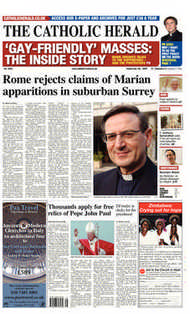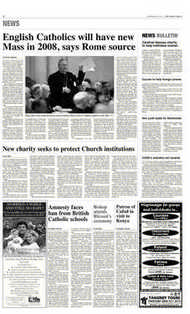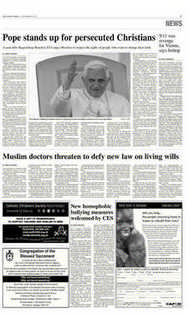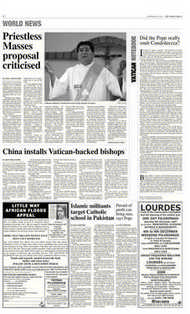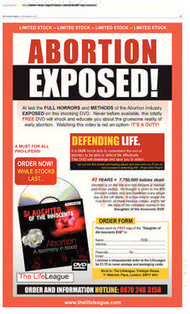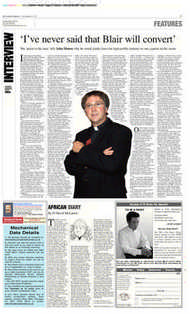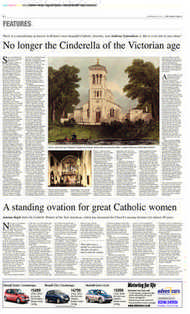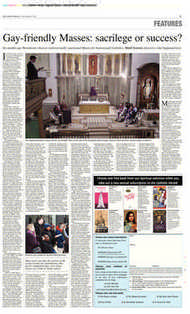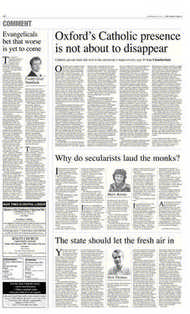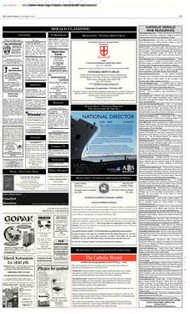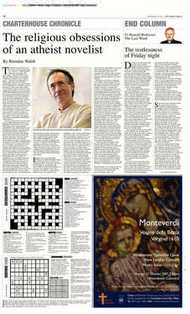Page 10, 28th September 2007
Page 10
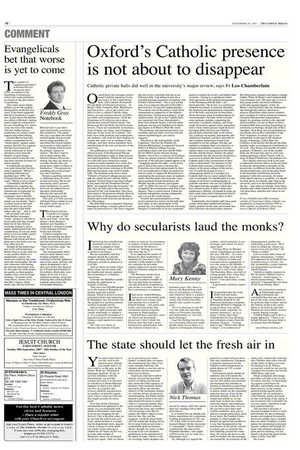
Report an error
Noticed an error on this page?If you've noticed an error in this article please click here to report it.
Tags
Share
Related articles
Bishops Join Offensive Against ‘dangerous’gambling Reforms
'watchdog' On Gambling Urged
Britain's Curse-mblessed By The State
Bishop Rejects Donations Derived From Gambling
Gambling Report Gets Support
Nation Of Gamblers
Evangelicals bet that worse is yet to come
Freddy Gray Notebook
The number of “problem gamblers” in Britain has not increased since 1999, according to the Gambling Commission, which last week published its report on the prevalence of gambling.
This claim seems highly dubious, given the gigantic betting boom of the last five years. It has been suggested that the Commission’s eagerness to play down the destructive effects of Britain’s betting mania might be connected to the new Gambling Act, which came into force this month. This law further relaxes restrictions on casinos, bookmakers and online betting.
Gordon Brown has been widely commended for his “moral stance” against supercasinos. But this Act suggests that the Government has merely redirected its fiscal attentions away from the benefits of giant fluttercentres and towards the vast and more discreet revenues of online gaming.
Evangelicals are getting very upset about the Government’s approach. “Britain’s gambling addiction has doubled since 1999,” the Christian Institute said last week. “Worse is yet to come.” Undoubtedly the British weakness for wagering has been fed by the advent of the internet and, in particular, by the emergence of betting exchanges such as Betfair.
These exchanges mean the punter can not merely “back” a certain result in the traditional fashion; he can also play the part of the bookmaker and “lay” – that is, sell – bets to other web users. Most Betfair customers “trade”, aiming to sell bets at lower odds than they bought them for. In fact, betting exchange trading is now a highly sophisticated skill, like stockbroking. If you are smart about it you can make a good profit. But if you are not blessed with strong self-discipline and a fast brain, you can lose, often heavily.
Despite all the trader lingo and swish web technology, Betfair thrives on the same sin as any grubby bookie in a mackintosh: avarice. No doubt you could say the same about the stockmarket. Yet the new obsession with betting has become alarmingly frantic. It exudes the same desperate quality as other popular modern vices, such as bingedrinking. “It matters more when there’s money on it,” is Sky Bet’s slogan, which neatly taps into the truth that Brit-lads don’t care about sport itself nearly as much as they pretend to. The catchy line says a lot about the disorientated apathy that peversely drives young gamblers on – and about the cynical marketing executives who exploit it.
The Catholic Church sensibly permits “games of chance”. We don’t want to risk an Irish schism. But before Catholics fill out the betting slip, they are meant to consider whether they are doing harm, either to others or themselves. “The passion for gambling risks enslavement,” says the Catechism.
Britain’s gambling industry is collecting slaves in every section of society. We do not necessarily need a government crackdown; we could, however, do without the cooperative relationship between the state and the mega-rich gaming sector.
That said, as I write you can still back France online to win the rugby world cup at 15-1 – surely worth a punt.
The Church advises Catholics to engage with people of “all faiths and none”. Leaving Queen’s Park Rangers’ stadium last Saturday, I witnessed a striking example of the dialogue between belief and unbelief.
A black evangelist was loudly proclaiming the glory of Our Saviour when a football fan with bad teeth and a denim jacket interrupted him. “There is no God, mate,” he
said. “It’s all b s.”
The street preacher didn’t seem to mind. Indeed, such hostility probably only confirms in him the righteousness of his cause. And the yob atheist disappeared with a dirty grin on his face because his yob pals had chuckled at his outburst. Both sides were happy. In its way it was a cheerful exchange, much less irritating than a boring Radio 4 debate about God with Christopher Hitchens.
blog comments powered by Disqus


